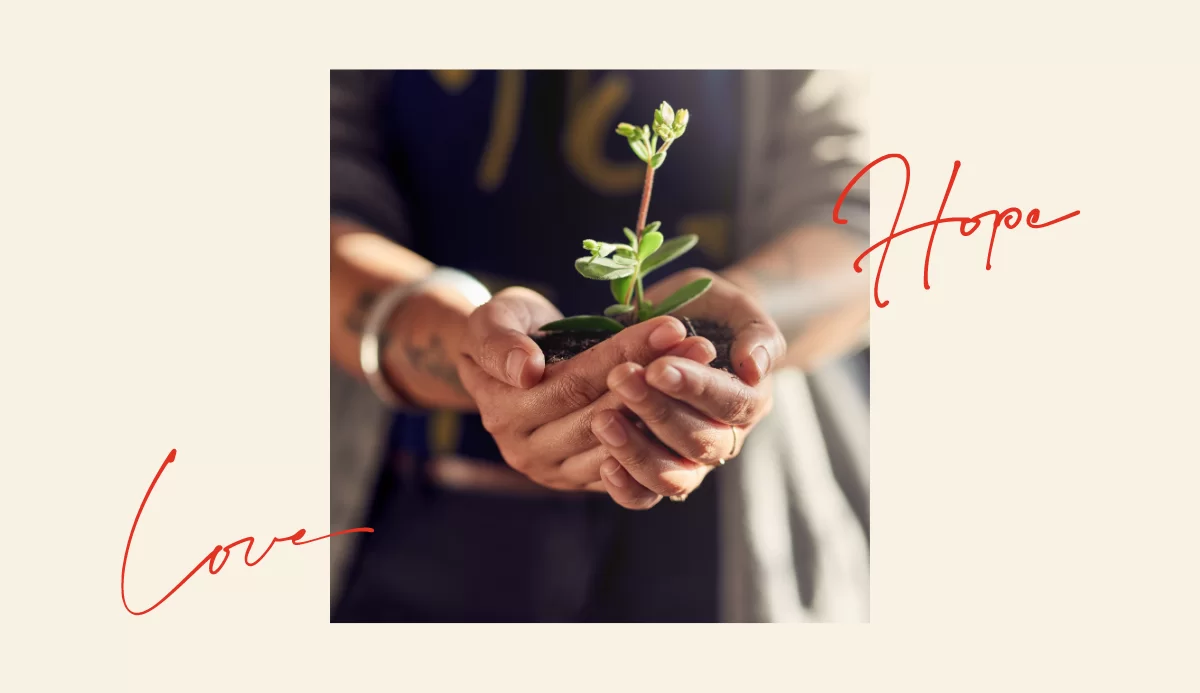
In this article, I’ll share 50 awesome examples of personal development goals that can help you become the best version of yourself. These goals cover many areas of life, from boosting your productivity to improving your relationships. I think setting personal development goals is super important because it gives you a clear path to follow. It helps you focus on what really matters and keeps you moving forward. So, let’s dive in and explore these life-changing goals together!
Table Of Contents
Why Should You Set Personal Development Goals?
Setting personal development goals is a big deal. It’s all about making yourself better, bit by bit. These goals help you grow in all areas of your life. They push you to learn new things, build better habits, and become the person you want to be.
I believe personal development goals are like a roadmap for your life. They show you where you want to go and help you figure out how to get there. Without them, it’s easy to feel lost or stuck. But with clear goals, you can make real progress and see how far you’ve come.
What Makes a Great Personal Development Goal?
A great personal development goal is one that really matters to you. It should be something that excites you and pushes you to grow. Here are some things that make a goal great:
- It’s specific and clear
- You can measure your progress
- It’s achievable but still challenges you
- It fits with your values and what’s important to you
- It has a deadline or timeframe
I think the best goals are the ones that make you a little nervous but also really excited. They should feel important and meaningful to you.
How Can You Set Achievable Goals?
Setting achievable goals is key to success. Here’s how you can do it:
- Start small: Don’t try to change everything at once
- Be specific: Instead of “get fit,” try “go to the gym 3 times a week”
- Write them down: This makes them more real and helps you remember them
- Tell someone: Sharing your goals can help keep you accountable
- Break big goals into smaller steps: This makes them less overwhelming
Remember, it’s okay to adjust your goals as you go. The important thing is to keep moving forward.
What Are Some Examples of Personal Development Goals for Work?
Your job takes up a big part of your life, so setting work-related goals is super important. Here are some ideas:
- Improve your time management skills
- Learn a new work-related skill each month
- Network with five new people in your industry
- Take on a leadership role in a project
- Improve your public speaking skills
These goals can help you grow in your career and feel more fulfilled at work. They can also make you more valuable to your company.
How Can Personal Growth Goals Improve Your Relationships?
Personal growth isn’t just about you – it can also help your relationships. Here are some goals that can make a big difference:
- Practice active listening
- Express gratitude daily
- Improve your emotional intelligence
- Learn to manage conflict better
- Spend quality time with loved ones regularly
Working on these goals can help you build stronger, healthier relationships. It’s amazing how much your personal growth can positively impact the people around you.
What Are Some Self-Improvement Goals for Mental Health?
Taking care of your mental health is super important. Here are some goals that can help:
- Start a daily meditation practice
- Journal for 10 minutes every day
- Practice positive self-talk
- Learn stress management techniques
- Seek therapy or counseling if needed
These goals can help you feel more balanced, reduce stress, and improve your overall well-being. Remember, mental health is just as important as physical health!
How Can You Set Goals to Boost Your Productivity?
Being more productive can help you achieve your other goals faster. Here are some productivity-boosting goals:
- Create a morning routine
- Use a planner or digital tool to organize tasks
- Take regular breaks to avoid burnout
- Learn to prioritize tasks effectively
- Reduce distractions like social media
These goals can help you get more done in less time, leaving you more energy for other important things in your life.
What Are Some Personal Development Goals for Learning and Growth?
Learning new things keeps life exciting and helps you grow. Here are some great learning goals:
- Read 25 books in a year
- Learn a new language
- Take an online course in a subject you’re curious about
- Attend a workshop or conference in your field
- Start a new hobby
These goals can expand your knowledge, boost your creativity, and make you a more well-rounded person. Plus, learning is fun!
How Can You Set Goals to Improve Your Physical Health?
Taking care of your body is crucial for overall well-being. Here are some physical health goals:
- Exercise for 30 minutes, 5 days a week
- Drink 8 glasses of water daily
- Get 7-8 hours of sleep each night
- Try a new healthy recipe each week
- Take up a new physical activity or sport
These goals can help you feel better, have more energy, and even boost your mental health. Remember, small changes can make a big difference over time!
What Are Some Financial Personal Development Goals?
Managing your money well can reduce stress and open up new opportunities. Here are some financial goals to consider:
- Create and stick to a monthly budget
- Save 20% of your income each month
- Learn about investing
- Pay off a specific debt
- Start a side hustle to increase your income
These goals can help you feel more in control of your finances and work towards long-term financial security.
50 Inspiring Self-Growth Goals to Transform Your Life
Here’s a comprehensive list of 50 self-growth goals to inspire your personal development journey:
| Personal Development Goals |
|---|
| 1. Learn a new language |
| 2. Read 30 books in a year |
| 3. Start a daily meditation practice |
| 4. Run a marathon |
| 5. Learn to play a musical instrument |
| 6. Start a side business |
| 7. Volunteer regularly |
| 8. Improve public speaking skills |
| 9. Learn to code |
| 10. Practice gratitude daily |
| 11. Develop a growth mindset |
| 12. Improve time management skills |
| 13. Learn photography |
| 14. Write a book |
| 15. Master the art of networking |
| 16. Learn to cook healthy meals |
| 17. Improve emotional intelligence |
| 18. Start a blog |
| 19. Learn to dance |
| 20. Develop a consistent exercise routine |
| 21. Practice mindfulness |
| 22. Learn to negotiate effectively |
| 23. Improve financial literacy |
| 24. Develop better listening skills |
| 25. Learn to meditate |
| 26. Start journaling daily |
| 27. Improve your posture |
| 28. Learn to play chess |
| 29. Develop a morning routine |
| 30. Learn basic home repairs |
| 31. Improve your memory |
| 32. Learn to draw or paint |
| 33. Develop better sleep habits |
| 34. Learn basic first aid |
| 35. Improve your writing skills |
| 36. Learn to manage stress effectively |
| 37. Develop a personal brand |
| 38. Learn to give constructive feedback |
| 39. Improve your critical thinking skills |
| 40. Learn basic car maintenance |
| 41. Develop better communication skills |
| 42. Learn to invest |
| 43. Improve your body language |
| 44. Learn to speed read |
| 45. Develop a positive mindset |
| 46. Learn basic self-defense |
| 47. Improve your digital skills |
| 48. Learn to practice mindfulness |
| 49. Develop better decision-making skills |
| 50. Learn to let go of past regrets |
Example Roadmap: How to Achieve a Self-Growth Goal
Let’s take one goal from our list and create a roadmap to achieve it. We’ll use “Learn a new language” as our example.
Goal: Learn Spanish to conversational level in 1 year
Month 1-2: Laying the Foundation
- Research and choose a language learning method (app, online course, textbook)
- Set up a study schedule (30 minutes daily)
- Learn basic greetings and phrases
- Start with simple vocabulary (numbers, days of the week, common objects)
Month 3-4: Building Basic Skills
- Start learning basic grammar rules
- Expand vocabulary (focus on most common 500 words)
- Begin listening to Spanish podcasts for beginners
- Practice speaking with language exchange apps
Month 5-6: Immersion and Practice
- Watch Spanish TV shows with subtitles
- Read simple Spanish books or news articles
- Join a local Spanish conversation group
- Use flashcards to memorize more advanced vocabulary
Month 7-8: Conversation Skills
- Have regular conversations with language partners
- Write short essays or journal entries in Spanish
- Listen to Spanish music and try to understand lyrics
- Learn idiomatic expressions and colloquialisms
Month 9-10: Fluency Building
- Try to think in Spanish
- Watch Spanish movies without subtitles
- Read more complex Spanish literature
- Practice describing your day entirely in Spanish
Month 11-12: Refinement and Assessment
- Take a practice Spanish proficiency test
- Focus on areas that need improvement
- Have longer, more in-depth conversations in Spanish
- Plan a trip to a Spanish-speaking country or attend a Spanish cultural event
Remember, this roadmap is just an example. You should adjust it based on your personal learning style, available time, and progress. The key is to stay consistent, practice regularly, and immerse yourself in the language as much as possible.
How Can You Track Your Progress and Stay Motivated?
Setting goals is just the first step. To really succeed, you need to track your progress and stay motivated. Here’s how:
- Use a habit tracker app or journal
- Celebrate small wins along the way
- Review your goals regularly and adjust if needed
- Find an accountability partner
- Visualize your success
Remember, progress isn’t always linear. There will be ups and downs, but what matters is that you keep moving forward.
Key Takeaways: Your Path to Personal Growth
- Personal development goals are crucial for growth and success
- Set clear, specific goals that matter to you
- Make your goals achievable but challenging
- Work on different areas of your life: career, relationships, health, etc.
- Break big goals into smaller, manageable steps
- Track your progress and celebrate small wins
- Stay flexible and adjust your goals as needed
- Remember that personal growth is a journey, not a destination
- Be patient and kind to yourself
- Keep learning and stay curious about life
Now it’s your turn! Which of these personal development goals resonates with you? Pick one or two to start with and begin your journey of growth and self-improvement. You’ve got this!
FAQ: 50+ Examples of Personal Development Goals to Set for Yourself
1. What is a personal development plan?
A personal development plan is a roadmap that helps you reach your personal and professional goals. It outlines the steps you need to take to achieve your objectives and become a better version of yourself. This plan can include short-term and long-term goals, and it covers various aspects of your life.
2. How do I create SMART goals for personal development?
SMART is an acronym that stands for Specific, Measurable, Achievable, Relevant, and Time-bound. When setting a personal goal, make sure it fits these criteria. For example, instead of "improve my skills," a SMART goal would be "complete an online course in public speaking within the next three months."
3. Can personal development goals help with career growth?
Absolutely! Setting development goals for your career can help you gain new skills, improve your work ethic, and create opportunities for growth. These goals can include anything from learning new software to improving your leadership skills. Personal development goals often align with professional goals, helping you advance in your career.
4. How can I build self-confidence through personal development?
Building self-confidence is a common personal development goal. You can work toward this by setting small, achievable goals and celebrating when you reach them. Also, learning new skills, improving your body language, and practicing positive self-talk can boost your confidence.
5. What are some examples of personal development goals?
Personal development goals can cover many areas of life. Some examples include:
- Improving time management skills
- Learning a new language
- Developing better communication skills
- Starting a meditation practice
- Reading a certain number of books per year
- Improving physical fitness
- Enhancing emotional intelligence
- Learning a new professional skill
6. How do I stay motivated to achieve my goals?
Staying motivated requires a mix of strategies. Some tips include:
- Break big goals into smaller, manageable tasks
- Celebrate small wins along the way
- Visualize your success
- Find an accountability partner
- Regularly review and adjust your goals
- Connect your goals to your personal values and long-term vision
7. Can personal development goals improve my relationships?
Yes, many personal development goals can enhance your personal relationships. Goals focused on improving communication skills, developing empathy, practicing active listening, or managing emotions better can all contribute to healthier, more fulfilling relationships.
8. How often should I review my personal development goals?
It's a good idea to review your goals regularly. Some people prefer to do this weekly, while others might do a monthly or quarterly review. The important thing is to check your progress, adjust your goals if needed, and stay focused on your personal growth journey.
9. How do I balance personal and professional development goals?
Finding a balance between personal and professional development is key to overall growth. Start by identifying areas where personal and career goals overlap, such as improving communication skills or time management. Then, make sure you're setting goals in various life areas, not just work. Remember, personal growth often contributes to professional success and vice versa.
10. What if I fail to achieve a personal development goal?
It's important to remember that setbacks are a normal part of any growth process. If you don't achieve a goal, use it as a learning opportunity. Reflect on what challenges you faced and how you can overcome them next time. Adjust your goal if needed, and don't be afraid to try again. Remember, the journey of personal development is just as important as the destination.
Transform your birthday from empty celebration into powerful reset with these 16 reflection rituals
Tired of afternoon energy crashes ruining your productivity? These nine natural energy boosters will
There’s something magical about Sundays – a gentle pause between the week that was and t





Leave a Reply